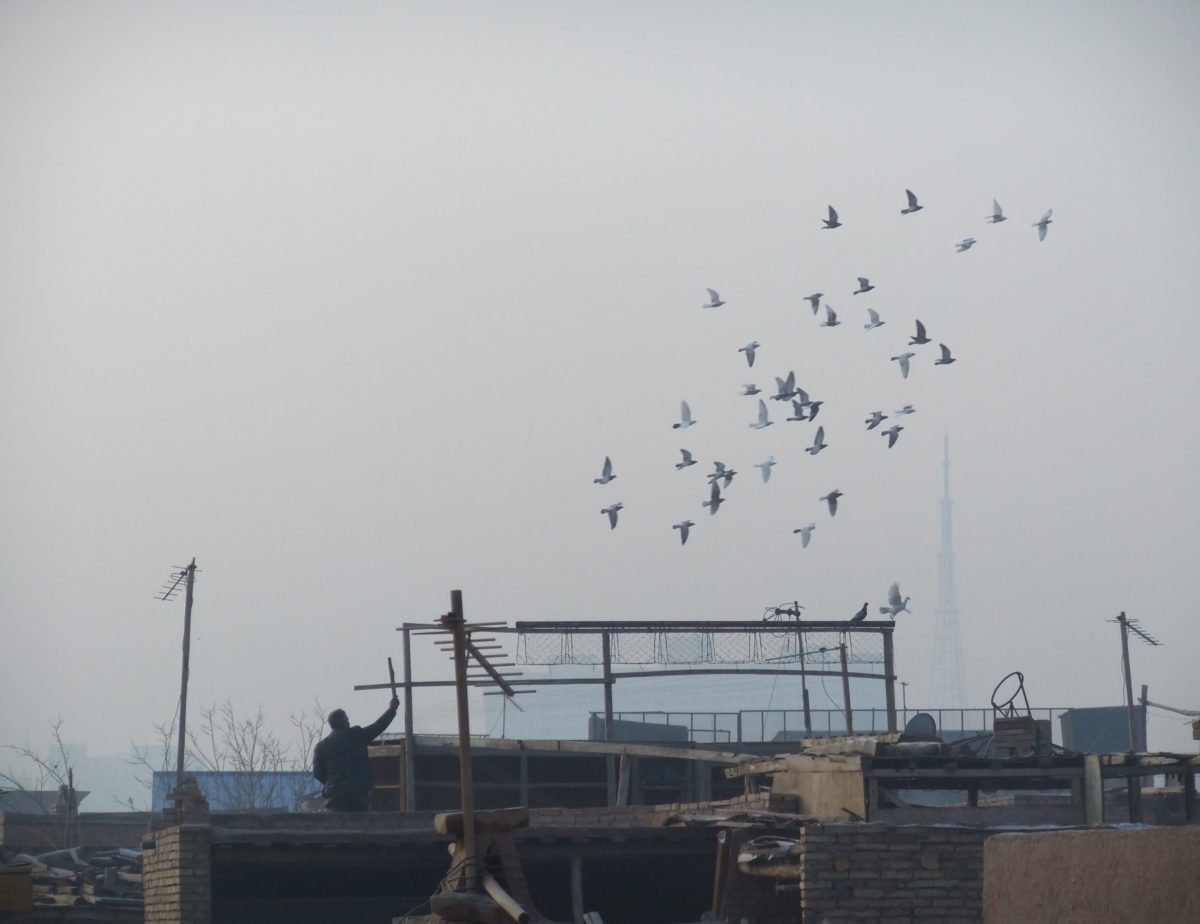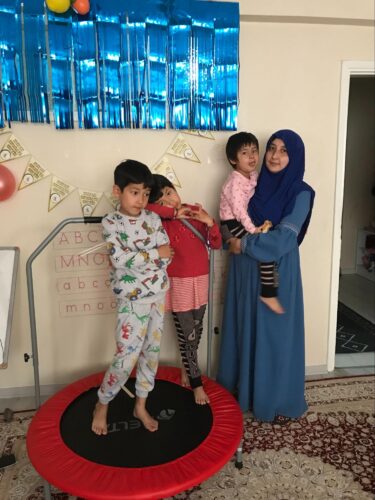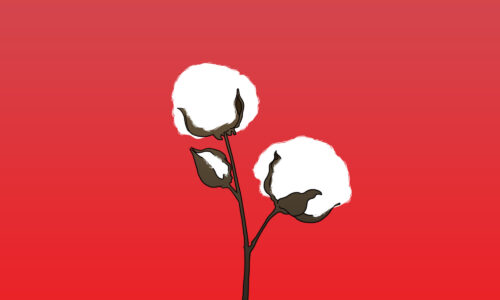China sentenced the Uyghur folklore expert Rahile Dawut (راھىلە داۋۇت, 热依拉 · 达吾提), 57, to life in prison in 2018. She disappeared in 2017, but her fate was only reported last week.
Dawut’s daughter, Akida Pulat, said she was “outraged” that her mother, an anthropologist whose life’s work was to preserve Uyghur culture — often with support from Beijing — should be treated so harshly.
“I want to tell the Chinese government: ‘You are showing the world that you have no mercy by giving my innocent mother a life sentence,’” Pulat told The China Project from her home in Seattle. “I ask you to show mercy!”
Tributes from colleagues, former students, and friends flooded social media after the Dui Hua Foundation, a political prisoner advocacy group based in San Francisco, reported that a Chinese court had rejected Dawut’s appeal of a 2018 conviction on charges of “splittism” (分裂国家罪 fēnliè guójiā zuì), or secession.
Article 103 of China’s Criminal Law imposes a sentence of “not less than 10 years” and up to life behind bars for those found guilty.
Dawut hails from the Xinjiang Uyghur Autonomous Region, an area of northwestern China three times the size of France that has been under strict state lockdown for Uyghurs and other mostly Muslim Turkic people since 2016. Dawut was swept up in the frenzy of mass arrests the next year.
Under the then Chinese Communist Party boss in Xinjiang, Chén Quánguó 陈全国, Uyghurs and other Turkic minorities were detained arbitrarily, and imprisoned. Mandarin was rolled out as compulsory, supplanting the Uyghur language in schools and universities. Among those detained were religious leaders and hundreds of academics, authors, and poets. Many were sent to mass internment facilities for so-called “reeducation.” Thousands have been found to have been sentenced extrajudicially to decades in jail.
Dawut’s disappearance in 2017
Dawut was picked up in December 2017 by Chinese police at Beijing Capital Airport, after leaving the Uyghur region en route to an academic conference in the city, triggering a six-year search by Dui Hua among its contacts inside China.
“According to a source in the Chinese government, Professor Rahile Dawut, an acclaimed Uyghur intellectual and expert on Uyghur folklore and traditions, is serving a life sentence for ‘endangering state security,’” Dui Hua, whose name means “dialogue” in Mandarin, said in its report, adding that China has a “very low acquittal rate.”
Abduweli Ayup, a Uyghur linguist, activist, and writer exiled in Norway, said that the harsh sentence showed that Beijing felt “threatened” by Dawut’s “love of collecting Uyghur traditional knowledge.”
“She is a role model for thousands of Uyghurs,” Ayup told The China Project. “She has documented Uyghur culture and traditional rituals, all of which the Chinese regime wants to destroy.”
A daughter in the U.S.
After learning of her mother’s sentence, Pulat posted thanks on her Instagram account for the outpouring of sympathy. “Please forgive me if I am not replying on time,” she wrote. “Please pray for my family.”
Since her mother’s detention, Pulat, a former graduate student at the University of Washington, has spent six years in and out of the media spotlight. Forced to claim asylum in the U.S., Pulat threw herself into international advocacy on behalf of her mother and all Uyghurs.
In 2020, Pulat accepted a “Courage to Think” award on her mother’s behalf from Scholars at Risk (SAR), the New York–based international network of institutions and individuals, whose mission is to protect scholars and promote academic freedom.

According to the Uyghur Human Rights Project in Washington, D.C., some 435 scholars and academics from Xinjiang have been muzzled, arrested, imprisoned, or simply disappeared in the midst of the greatest crackdown on academic freedom in China since the Cultural Revolution, the period of political upheaval from 1966 to 1976 that shut China’s university system and sent a generation of Chinese scholars to toil in the countryside.
“We are the keepers of this history”
Since her 2017 disappearance, rumors swirled about Dawut’s fate.
She was an associate professor in the Human Science Institute of Xinjiang University. In 2007, she founded the Minorities Folklore Research Center in Xinjiang University, in Xinjiang’s capital, Ürümqi. Dawut was a visiting scholar at Harvard, Cambridge, the University of Pennsylvania, and the University of Washington.
She was also a member of the Chinese Communist Party for 30 years, and her work often was supported by research grants from China’s Ministry of Culture.
I got to know Dawut through our shared interest in Uyghur culture. When I last saw her in 2017, in her office at Xinjiang University, she was in a hurry to digitize recordings, painstakingly captured during months of fieldwork in the most remote villages.
“Nothing must be lost,” Dawut told me. “We are the keepers of this history and future generations will rely on us to preserve it.”
After her disappearance, four years passed and China’s crackdown in Xinjiang intensified, blocking information from the ground from getting out to the world. In 2021, Dawut’s university colleagues told Radio Free Asia by telephone that she had been sentenced and jailed in 2018. No one could tell why or for how long. There has been no information about her since then.
Dui Hua’s statement on September 21, 2023, was the first reliable confirmation of Dawut’s fate. Following a closed trial and conviction in an intermediate court, Dawut’s 2018 appeal to the Xinjiang High People’s Court was rejected, Dui Hua said.
“It’s heart-wrenching to learn that another daughter has to bear with the news of their innocent parent being sentenced to life,” said Jewher Ilham, whose father, the Uyghur economist Ilham Tohti, was sentenced to life in prison for “separatism” on September 23, 2014.
“I wish one day my father will be released, so the date of September 23 will no longer be special and painful in my heart,” Ilham, a friend of Pulat’s, told The China Project.

Dawut authored many books and research papers over the years, but the publication that most endeared her to Uyghurs was her slim volume detailing the histories and locations of hundreds of mazars, the tombs of beloved saints and heroes of their faith, shrines dotting Xinjiang’s desert landscape.
Dawut told me that Mazar, published in 2002, was used “as a kind of guidebook” by Uyghur villagers, particularly in the south of Xinjiang, as they journeyed, sometimes for weeks at a time in search of particular saints’ burial grounds, where they would plant flags in the dunes and petition their spirits for health, fertility, suitable partners for their children, and employment in times of economic crisis.

A notable feature of the Chinese state crackdown in Xinjiang that started in 2016 was the destruction of mosques and holy sites. The Party went to special lengths to desecrate mazars, according to Rian Thum, the author of The Sacred Routes of Uyghur History.
Within the space of a week, from March 10 to 17, 2018, bulldozers driven nearly 50 miles into the harsh Taklamakan Desert flattened the tomb of Imam Je’firi Sadiq, where, for over 450 years, pilgrims wept and prayed to the Uyghur hero who brought Islam to the region 1,000 years earlier, Thum wrote.
Though China’s destruction of Uyghur religious sites was well underway when I last saw Dawut, she still spoke of having complete faith in the Chinese Communist Party and the system that funded and supported her mission to rescue and record the Uyghur culture.
She never was drawn into politics and seemed puzzled that her book started to disappear from bookshelves.
“Distribution must be the problem,” Dawut told me.
She never saw the writing on the wall.
Or perhaps she did but kept it to herself.
Dawut’s deep knowledge of Uyghur sites and history was her downfall, according to Medine Nazimi, the director of the Chinese Concentration Camp Victims Group in Istanbul, which is home to a Uyghur population of roughly 50,000.
“First of all, she has been sentenced because she is a Uyghur and an intellectual and people follow her,” Nazimi told The China Project. “The Chinese government just hangs random crimes on the backs of Uyghurs and turns our lives, our families, our hopes and dreams upside down. Some people have even died because of it. She has done nothing to deserve this punishment.”
Rushan Abbas, the CEO of the Campaign for Uyghurs in Washington, D.C., described Dawut’s sentence as “incredibly unjust.”
“This is yet another example of the CCP demonizing Uyghur culture to justify their genocide,” Abbas told The China Project. “We demand her immediate release and urge the international community to recognize this grave crime.”
Abbas’s own sister, the retired physician Dr. Gulshan Abbas, was sentenced to 20 years in jail in China for supposedly taking part in “organized terrorism” and “aiding terrorist activities and seriously disrupting social order.”
In New York last week, China circulated a letter discouraging diplomats gathered at the annual United Nations General Assembly from attending a public discussion on the one-year anniversary of a UN report that said China’s treatment of the Uyghurs may constitute “crimes against humanity.”
Omer Kanat, the executive director of the Uyghur Human Rights Project, a documentation and advocacy group in Washington, D.C., said he was devastated “on an intensely personal level” to learn of Dawut’s sentence.
“Rahile Dawut is not a political person, but she is a representation of Uyghur culture,” Kanat told The China Project. “Her dedicated career as an anthropologist should never have made her a target.”
Rahima Mahmut, the U.K. director of the World Uyghur Congress, which is based in London, told The China Project that the news moved her to tears.
“I was completely shocked. Rahile Dawut is a scholar. We know that all the research she was involved in, the foreign trips that she made attending conferences, including to the School of Oriental and African Studies in London, was purely to do with anthropology and our culture,” Mahmut said. “Beijing had never complained about anything in all her years of research. Hearing of her being accused of separatism is unfair beyond words. I cannot find words to express my devastation and anger.”
“These are words from my heart,” said Mahmut. “After six years of having had no news, to suddenly hear about this life sentence is just so sad. She was someone I knew, I met, who was so kind, so soft, so gentle, and so careful. My words alone can’t express how I and every member of my community feel. Today is such a sad day.”
In the wake of the news of her mother’s life sentence, Akida Pulat’s Instagram posts continued: “I am not ok, but I am holding on. What choice do I have except holding on?”








